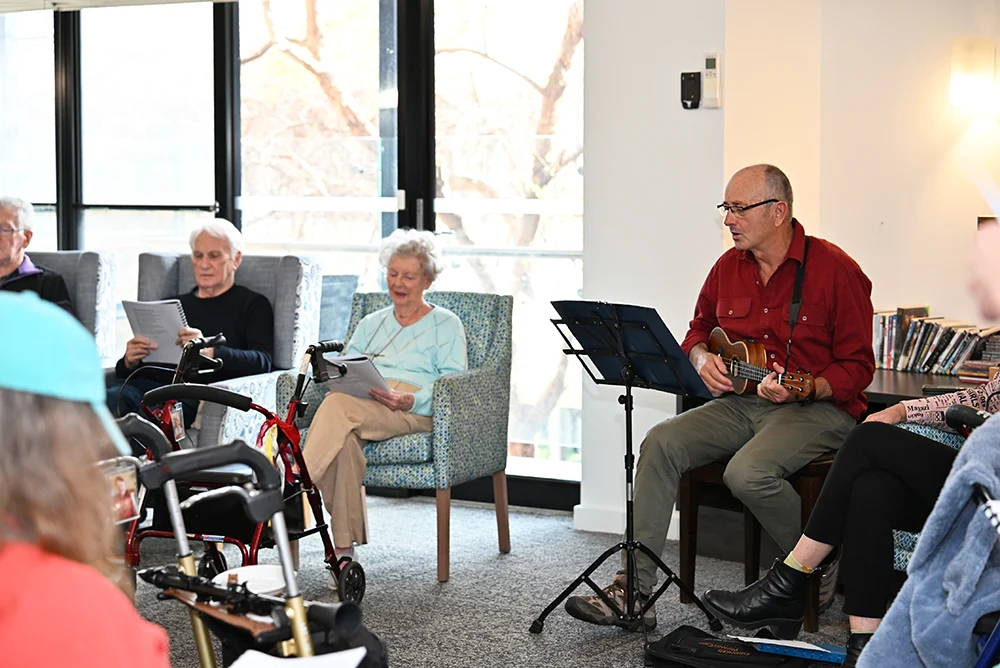How to Take Care of Ageing Parents

Taking care of ageing parents can be a complex and challenging task, but can also provide many rewards. When you know that your elderly loved ones are being properly cared for, you can put concerns for their wellbeing to the side and enjoy the time you spend together.
Whether the solution for your parents is professional caregiving in an assisted living facility or, ageing gracefully in place with some support at home, there are many ways to help ensure your loved ones’ comfort, happiness, and financial stability.

Talking about care with your elderly parents
For most elderly people, the objective is to stay at home and independent as long as possible. As a family member, you may have some influence on the choices your elderly parents make as they age. Use this influence carefully to ensure their wishes are at the centre of each discussion.
The best time to talk about plans for later life care is long before decisions need to be made, so that plans can be laid out without a sense of urgency. Have discussions about what your parents’ future health may look like, as well as what financial planning has been done.
Many parents initially resent the idea that their adult child is bringing up the possibility of needing help in the future, particularly if money is introduced into the conversation.
Always put their needs first
You can make these discussions easier by highlighting that you are talking about future planning that your loved ones are in charge of. It is about their choice and their needs. This helps to acknowledge and respect their fears and other feelings on the topic.
Focus on your desire to help your loved ones achieve their dreams for the future. Gently bring up the possibility of dementia and discern their wishes in the case that they are unable to direct their own care.
You should also discuss what they would like to occur should one elderly spouse become severely ill or debilitated. It shouldn’t fall completely on the shoulders of the surviving spouse to care for them; instead, discuss support services that can help.
Residential age care vs in-home care
One of the biggest fears for the elderly is loss of independence.
You can allay these fears by discussing home care assistance options. These are designed to keep your loved ones living in their own home independently for as long as possible.
In-home care can take many forms. If you are caregiving, you may already know what help your parent needs and what they can manage on their own.
There could be a need for simple transportation and help with shopping, or with meal preparation. Maybe your ageing parent needs assistance getting up, bathing and getting dressed in the morning. Even nursing care can be arranged in the comfort of their own home.
There are cases in which a shift to a residential aged care facility may be the only safe option.
This is particularly common with the elderly whose family cannot act as full-time caregivers, who have dementia or Alzheimer’s, or who require round the clock care for clinical reasons or, to avoid injury or wandering.
By having honest, open discussions with your ageing parents, years in advance of any such eventuality, you can help them make their own decisions and ensure that they are in control of their lives and their dignity.
The best outcome for most people is being able to stay in one’s home. The next best option is a move to a retirement village with assisted living options or a residential aged care facility that is mutually agreed on, and not forced.
If you are responsible for the care of elderly parents, you may also need help.
Respite care means having a qualified, caring professional take care of your loved one for a period of time anywhere from a few hours to an overnight stay or even for a few weeks. This gives you a break from caregiving, so you can attend to your own needs.
Self-care is just as important as senior care, because if you don’t take care of yourself, then being a caregiver for someone else becomes even harder.
Available home care services
There are many services available to seniors who wish to stay at home but who need some assistance with day-to-day tasks. Your parent may qualify for a Home Care Package, which funds different levels of care which can be delivered by a local provider of choice.
Since the package level is determined by how much care your parent is assessed to require and not specific services, services can be continually adjusted to suit changing needs.
Services for which Home Care Packages can be used include:
- Transportation to and from the store or community events
- Meal planning, shopping, and preparation
- Personal services including bathing, showering and dressing
- Housekeeping, such as cleaning, laundry and linen
- Companionship and social activities
- Nursing care in the home
- Respite care
- Allied health services such as physiotherapy and podiatry
- Home maintenance and gardening
Working in partnership
You and other people sharing caregiving tasks, can help determine what is best delivered by family and what could be handled by the care provider. Unspent funds from a Home Care Package can be directed to respite care, allowing a main caregiver to take time away and tend to their own needs.
If money is not a serious hindrance, you can add extra services at any time through a private pay option. You can also access these same home care services as a private payer if your ageing parents don’t qualify for a Home Care Package or you are waiting for approval.
The best thing to do once a decision has been made to seek home support is to apply for services as soon as possible. This can reduce the chances of second thoughts or future resistance against the idea of home care. When the decision is made jointly and there is mutual agreement about what services are needed, the transition from complete independence to assisted independence is much easier.
Have you been wondering how to take care of ageing parents while helping them maintain their dignity, sense of self-worth, and personal independence?
Call our friendly team on 9591 1296 to talk about our home care services.
It could be the next logical step to getting the assistance you need to help your beloved parents need to stay safe, healthy, and happy in their own home.










